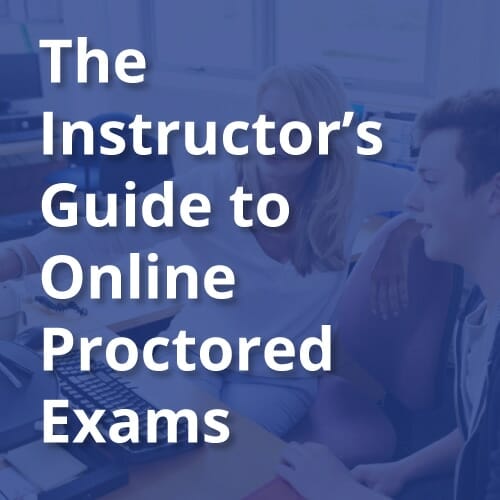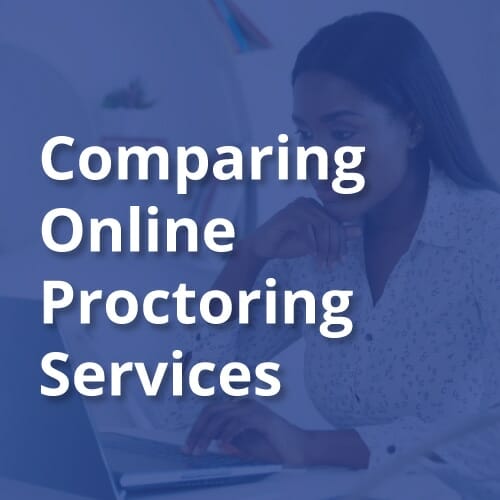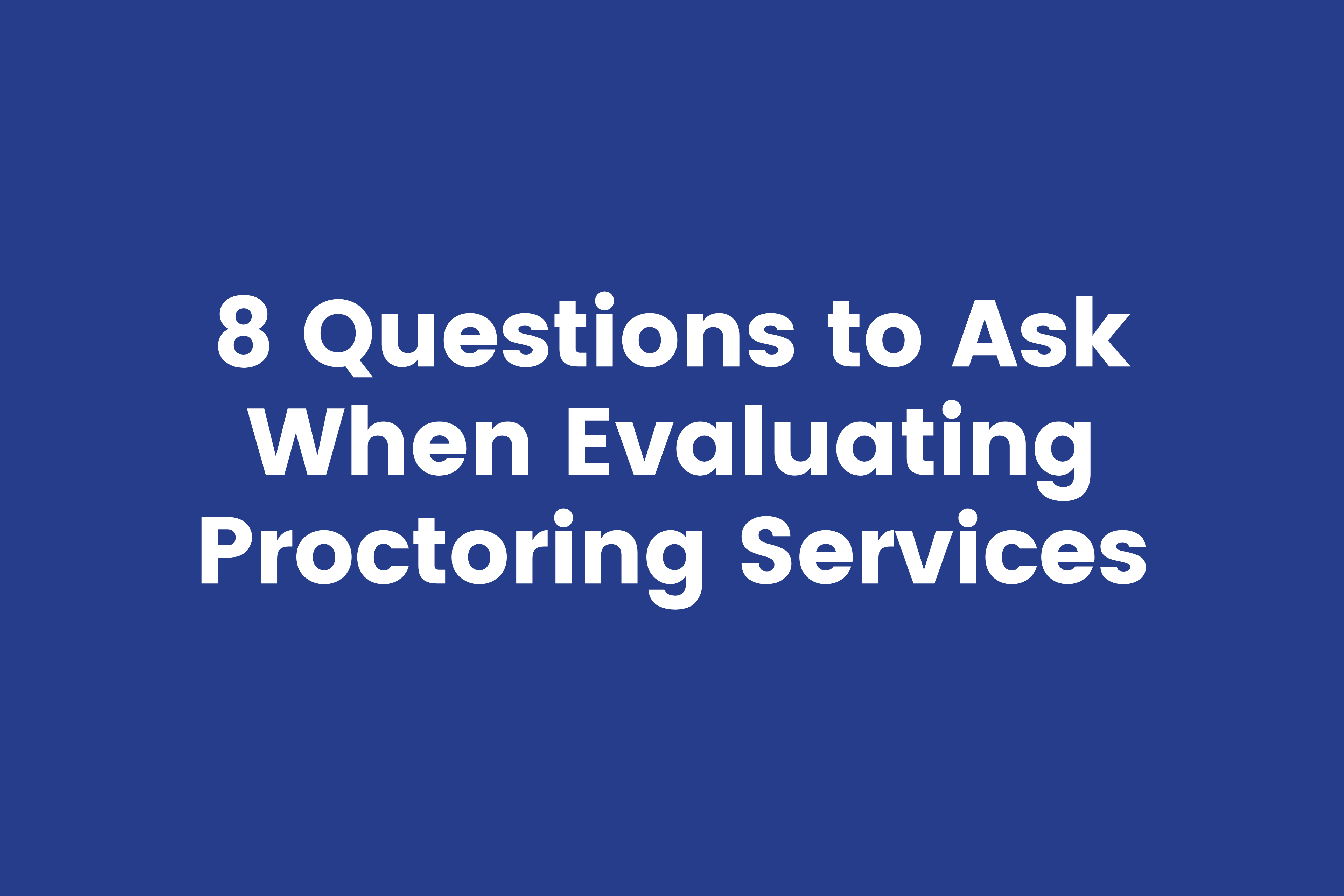If you’re looking for new online proctoring or online testing solutions, you know just how overwhelming the process can be. There are countless features to compare, and you also need to consider the needs and perspectives of students, faculty, and administration.
But where do you even begin? Start by considering these ten factors.
1. Flat-rate cost per exam
Each instructor, not to mention each course, has variable requirements for assessment length. This can lead to unfair hikes in cost—when online proctoring services charge per hour, you may pay twice as much for longer exams.
As you grow your online programs, you need cost-effective testing. Systems that charge a flat rate per exam protect your bottom line and help you accurately estimate testing costs.
2. LMS integration
Your faculty are busy. The last thing they need is to find the time to learn a whole new system. Unfortunately, many online proctoring services require just that. Instead of focusing on teaching or research, they’re spending their days setting up exams.
You and your institution can’t afford to lose this time—you need a proctoring service that directly integrates with your LMS and allow faculty to set up exams in your LMS with just a few clicks.
3. 60-second student ID verification
With the growth of online education, verification of a student’s identity has become an important factor for success. For some programs, ID verification is required, but all schools want to ensure that the student taking the exam is the same student enrolled in the course. It’s important that the proctoring solution you choose can read the content on the student’s ID and then compare and match it to the student’s name and information in your LMS before the student is permitted to launch an exam.
4. Cell phone detection
Pretty much any student has a cell phone or a second device such as a tablet or smartwatch. As student technology advances, you need the ability to detect cell phones and prevent students from using them to cheat on exams.
Most online proctoring services have yet to solve this problem, leaving your results vulnerable. You, your faculty, your accrediting bodies, and the businesses hiring your graduates want to know that the degree your students earn is an accurate reflection of what they’ve learned.
5. 24/7 support based in the US at no additional cost
For faculty, there may not be anything worse than hearing from a student at 3 am because they’re having trouble with an exam. It’s frustrating for students too.
When online proctoring systems offer sub-par support or have limited support hours, they place the burden on faculty and administration. You need an online proctoring service that will provide assistance whenever your faculty or students need it. On-demand exams only work with on-demand technical help.
6. AI proctoring software proctoring combined with human
Most of the proctored online testing solutions on the market today follow one of two models (live or automated) both of which come with challenges.
Those that offer live proctoring create discomfort for students, who feel like they’re being watched. They can also be somewhat less reliable because a single proctor watches multiple students at once, making it easier to miss instances of academic dishonesty.
By using an automated, record and review format, it’s impossible to intervene in real-time if an issue arises. You need a solution that combines AI with a human touch for the perfect hybrid—the AI proctoring software monitors the student for potential problems, and, if it detects any, a proctor is prompted to pop in and work with the student to address it before it turns into anything too serious.
7. 24/7 exam scheduling
Choose a solution that allows students to take their proctored online exam at any time, day or night. This helps alleviate the stress of scheduling and then waiting for the remote proctor before they can start the online exam.
Limited proctor hours can prevent students from being able to take the exam when they are most ready and most alert. With on-demand proctoring, students can take assessments from anywhere at any time—even if it’s at 2 am over Thanksgiving break. Your students deserve the freedom and convenience of taking exams on their schedule without any headaches.
8. Test content protection
Few things are more frustrating for faculty than discovering that their exam questions are available on test bank websites. Unfortunately, this is becoming more common, and instructors have limited tools to respond. Instead, they find themselves creating new exam content every semester to stay ahead of cheating and protect academic integrity.
When you’re selecting proctored online testing solutions, this is an important consideration—does it do anything to protect test content? Look for one that will search test bank sites for illicit exam questions and file takedown notices. You can save faculty time while protecting your program’s academic integrity.
9. Actionable proctored exam reporting
As online educational tools become more widely used, both students and faculty expect faster turnaround times for evaluations. Unfortunately, many online proctoring systems can take up to three days to provide exam recordings for faculty review, and faculty then need to log into a third-party system for access. Your faculty and students don’t want to wait that long for results. You need a system that will provide real-time access to exam recordings—right in the LMS.
10. No bulky software downloads
More and more students are concerned with cybersecurity—and with good reason. The last thing they want to do is download extra software to take an exam. These third-party browsers are often slow and take up an unreasonable amount of computer memory. Even if they’re deleted immediately following the exam, they can slow things down, and they can make students even more apprehensive about security. You need an online proctoring system that utilizes browser extensions to prevent unnecessary extra software and protect your students’ peace of mind.
The good news? While this is a lot to keep in mind when selecting a proctoring service, you can find all of it in one place. Honorlock offers all this and more. Our proctoring software protects academic integrity, and our system is intuitive, easy to learn, and convenient for students and faculty alike.
Sign up below for more online proctoring decision making resources
Want to see Honorlock in action? Schedule a demo.










